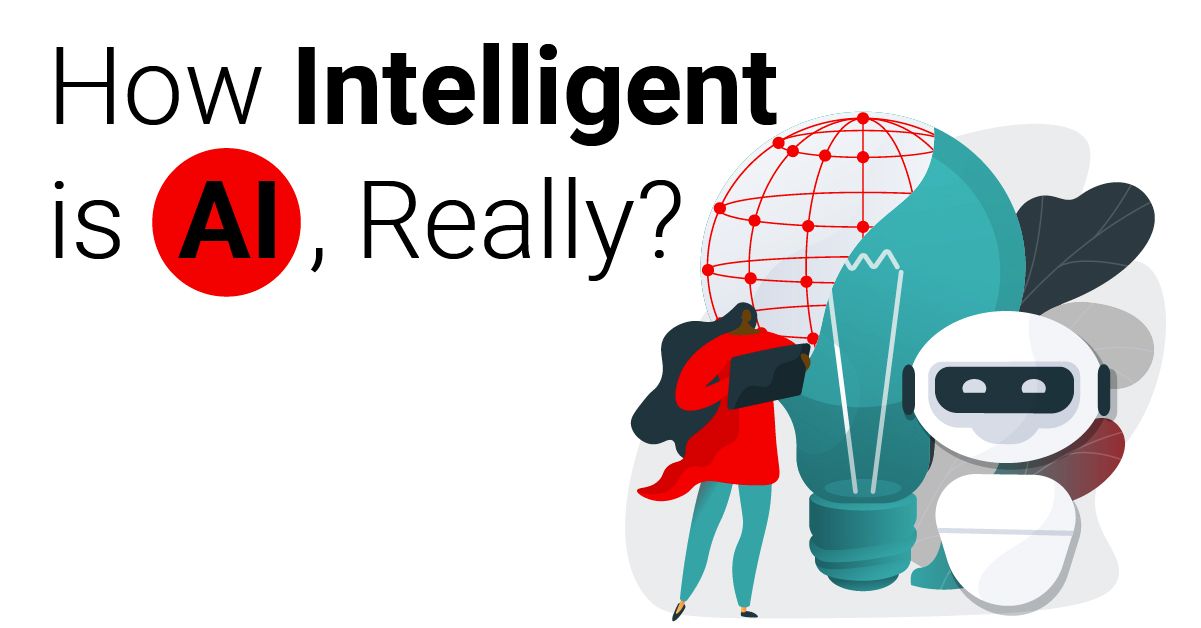
How Intelligent is Artificial Intelligence, Really?
With many fearing the rapid rates at which artificial intelligence is being implemented across all industries-- are our fears really justified? Although artificial intelligence is growing at exponential rates, artificial intelligence is still lagging behind in a few very important ways. In reality, artificial intelligence isn’t as advanced as you think, and that’s a good thing.
What artificial intelligence still can’t do
To give society a healthy reality check (and let’s be honest, ease our fears), let's examine the weaknesses of artificial intelligence. In order to create a better, future generation of artificial intelligence, some serious changes must be implemented. At this stage, the development of AI is still somewhat misguided, or to be completely honest, has failed, as we will see with the below examples.
Artificial intelligence lacks common sense
Just by living, humans come to understand a seemingly infinite number of facts about how the world works. This helps us deduce the meaning of a lot of things, something artificial intelligence is lacking. Because artificial intelligence is driven by logic and pure facts, it often fails at grasping the meaning of what humans would consider simple statements: i.e. humans understand that what you order at a restaurant you also eat, but to artificial intelligence this deduction isn’t so clear.
Artificial intelligence lacks continual or lifelong learning
Humans are able to continuously learn through life experiences and apply this new knowledge immediately. The same cannot be said for artificial intelligence; artificial intelligence is not suitable for open-ended learning. Artificial intelligence models are uploaded with big data sets, designed for them to perform a set task. If you want them to "learn" new things, you would have to manually update the model from either new data or setting different parameters. In this way, deep learning models are not able to do well with new stimuli.
Artificial intelligence doesn‘t understand cause and effect
Artificial intelligence is excellent at understanding patterns and making associations in data; however, when it comes to cause and effect, artificial intelligence fails. For example, if enough of the right data was fed into a machine learning model it could identify that roosters crow with the rising sun. Unfortunately, it would not be able to tell whether the rooster crowing causes the sun to rise or the sun rising causes the rooster to crow. Although this is a very trivial example, it illustrates the larger problem at hand: artificial intelligence understands associations, but not causes.
Artificial intelligence Ethics? Is there such a thing?
If we are to trust machine learning systems with more real world responsibilities like hiring decisions and granting loans, we need to make sure artificial intelligence is making ethical decisions. Many of us remember when Microsoft released their artificial intelligence chat bot on Twitter, called Tay, in 2016. Fed by internet trolls, within hours, it was tweeting racist and sexist material. Artificial intelligence is designed in such a way that when you feed it garbage, garbage comes out. It isn’t that artificial intelligence is immoral, it's that it's amoral.
The future of artificial intelligence in our society
What does the future of artificial intelligence look like? As artificial intelligence becomes more widely used throughout society, it’s vital for us to urgently address the major faults artificial intelligence currently possesses. Artificial intelligence has the potential to greatly improve our world, but to also create chaos if it’s current issues are not resolved. The future of artificial intelligence is in the hands of humans.
Read the original article [here.](artificial intelligence)
Take a look at more top articles, trends and experts by signing up to our newsletter—By getting to choose which topics interest you the most, you get the latest news delivered with ease.